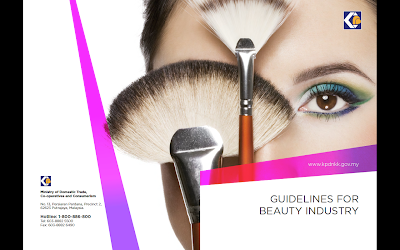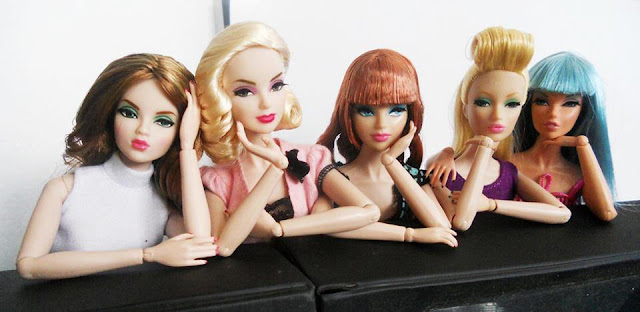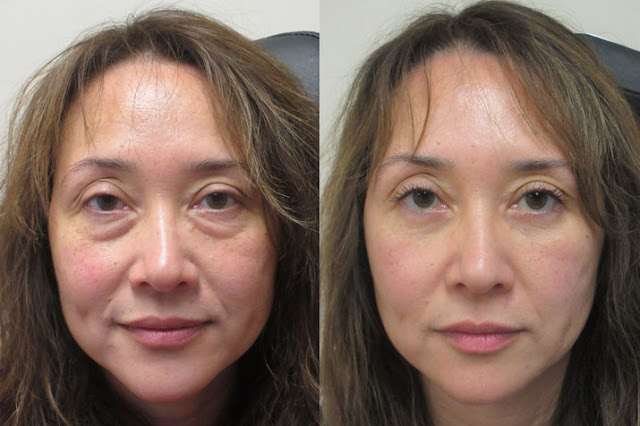Guidelines for Beauty Industry by the Malaysian Ministry of Domestic Trade, Co-operatives and Consumerism
 |
| Guidelines for Beauty Industry | Malaysia |
1. OBJECTIVES
1.1 The objectives of this guidelines are as follows :
i. To increase professionalism and to prevent the occurrence of unwanted incident within the beauty services;
ii. To encourage the practitioners to adhere to good practices when providing services or when administering treatments; and
iii. To enhance consumer protection against improper practices in the beauty industry.
2. DEFINITION OF BEAUTY INDUSTRY
2.1 This guidelines is applicable to the beauty industry. The beauty industry refers to trades which provide services as follows :
Any procedure which is intended to maintain, or enhance a person’s external physical appearance or to produce a greater feeling of well-being including facial or body treatments, application of cosmetics, manicure or pedicure, application, or mending, of artificial nails, epilation including electrolysis, hot or cold wax.
2.2 The practitioners in this industry include beauticians, aestheticians, beauty consultants, aesthetic therapists, spa therapists, complementary therapists, masseurs, make-up artists and nail technicians.
3. GENERAL PROHIBITION FOR BEAUTY PRACTITIONERS
3.1 A beauty therapist should confine his/her practices to the services set out in Paragraph 2.1. In addition, the practitioner shall not:
i. Operate or give manipulative treatment for any condition requiring the use of a general or local anesthetic by injection even within the fields mentioned in paragraph 2.1;
ii. Treat any person who to his/her knowledge is at the time under the care of a medical practitioner for a condition likely to be affected by his/her treatment without the knowledge and consent of that practitioner;
iii. Make misleading or deceptive claims about their services, advertise products or services with false endorsements, claim benefits that they do not have, make false representations about the standard, quality or value of the service offered;
iv. Engage the services of medical practitioners to carry out prohibited services as mentioned in 4.1 in their beauty premises; and
v. Allow or rent out their beauty premises to carry out any of the mentioned manipulative treatments even by medical practitioners.
4. SERVICES TO BE PROVIDED WITH CAUTION AT BEAUTY PREMISES
4.1 Practitioners in the beauty industry to exercise caution when providing the following services:
i. Intense Pulsed Light ( IPL )
The use of any IPL machine is not encouraged unless the practitioners have received adequate training to use such machines correctly and in a safe manner.
ii. Laser treatment
Laser Treatment machines should only be used by practitioners who have received adequate training and are able to use such machines correctly and in a safe manner.
iii. Acupuncture
Acupuncture treatment shall be administered in accordance to the relevant legislation.
iv. Piercing
Beauty Therapist should refrain from providing such services in the beauty salon premise.
v. Slimming treatment
Slimming treatment involving the use of sonography, cavitation, hot and cold treatment and coolant (chemical) machine should be administered with care and by practitioners who have received adequate training.
vi. Ultra-sonic devices
The use of ultra-sonic devices must be used with caution and the practitioners should have received adequate training to use such devices correctly and in a safe manner.
5. PROHIBITED SERVICES AT BEAUTY PREMISES
5.1 The following services are prohibited at beauty premises :
i. Removal of moles and warts - No practitioners remove moles or warts by using chemical or by using diathermy or other electrical or mechanical means;
ii. Chemical peels exceeding 15% , and lower than pH 2*
iii. All types of injection
All types of injectable treatments that works by relaxing the facial muscle to get rid of lines and wrinkles, the use of fillers for volume enhancement and chelating therapy using intravenous Vitamin C or other chelating agent for skin whitening.
iv. Implantation to the body
The implantation of a device placed under the human skin for decorative or modification purposes. The treatments may be sub-dermal or trans-dermal.
v. Derma-roller
The use of derma-roller for deep acne scar treatment and skin rejuvenation which penetrates the skin and create lots of tiny wounds.
vi. Liposuction
The treatment that involves the removal of fat deposits from the body using a cannula.
vii. Injection/Fat Graft
A medical procedure using the technique of moving fat from one area of the body to another to improve contour, correct defects or enhance features.
viii. Eyelid surgery (Blepharoplasty)
A surgical modification of the eyelid. Excess skin and fat are removed or repositioned, and surrounding tissue may be reinforced.
ix. Hair transplant
A surgical technique that involves harvesting hair follicles from one part of the body (the donor site) and transplanted to bald or balding parts (the recipient site).
x. Incision and suturing of skin - Making a cut to the skin and joining the tissue using needle and thread.
xi. Sinus treatment which involves penetration into the nose using product or instrument.
xii. Any form of blood-letting or blood-withdrawal treatment - for cosmetic or any other purposes.
xiii. Cosmetic Dentistry - Any dental work that improves the appearance of a person’s teeth, gums and/or bite.
xiv. All treatments that induces abrasion causing damage to the skin.
xv. Slimming treatment involving the consumption of prescribed drugs.
6. BEAUTY THERAPIST
6.1 All beauty therapists are encouraged to acquire the necessary
trainings and qualifications which commensurate with the services they provide.
6.2 All beauty therapists shall maintain good personal hygiene and stay healthy at all time.
6.3 All beauty therapists should have good interpersonal skills
7. CODE OF ETHICS
7.1 All beauty therapists shall abide by the Code of Ethics and good
practices as follows:
i. Uphold the high professional standards of the industry;
ii. Conduct themselves in conformity with good character and professional decorum;
iii. Obtain consent from clients prior to treatment;
iv. Obtain consent from clients before taking pre and post photography as evidence of effectiveness of treatments. No picture of clients may be used for advertising or publicity purposes unless the prior consent of clients is obtained;
v. Respect the right and privacy of customers and safeguard customers’ information within the limit of the law;
vi. Shall not engage in activities which are illegal or immoral. They must not work in, or be associated with establishments which offer services which are illegal or immoral;
vii. Refrain from condemning, degrading or criticizing the work of fellow practitioners;
viii. Be knowledgeable and be able to give right and sufficient information, advice and recommendations about the products and the services that are offered to the clients consistent with good industry practices. This includes furnishing any information on the possible side effects of the products or treatments, if any;
ix. Shall not undertake treatments which are beyond the scope of their professional education, training and experience;
x. All beauty therapists should, as far as possible, enquire any medical history before treating a client for the first time to ensure the client is under the care of a medical practitioner or not;
xi. In the event of unwanted incident occured, beauty therapists must be able to identify quickly and refer such cases that need medical attention;
xii. Act honorably towards their clients by informing and publishing a transparent pricing or charges list prior to the treatment and avoid any false claim that can mislead the clients; and
xiii. Refrain from participating in aggressive or pressured products or services promotion which will lead to disturbance and harassment to the clients
8. BEAUTY PREMISES
8.1 Each beauty therapists has the responsibility for maintaining a safe, clean, well maintained and healthy premise at all time by following environmental, safety, and health rules and practices.
8.2 All beauty premises should have adequate and suitable structural items and facilities for services offered.
8.3 All beauty premises shall obtain the necessary licenses required by any respective regulatory bodies.
8.4 All relevant licenses shall be displayed and be visible to the public.
Source:
http://www.kpdnkk.gov.my/kpdnkkv3/images/KPDNKK/PDF/Peraturan_GarisPanduan/Garis_Panduan/GP_Kecantikan.pdf
Alternative source for download:
http://www.cmba.my/Literature/Guideline%20Beauty%20Industry%20web.pdf


Comments